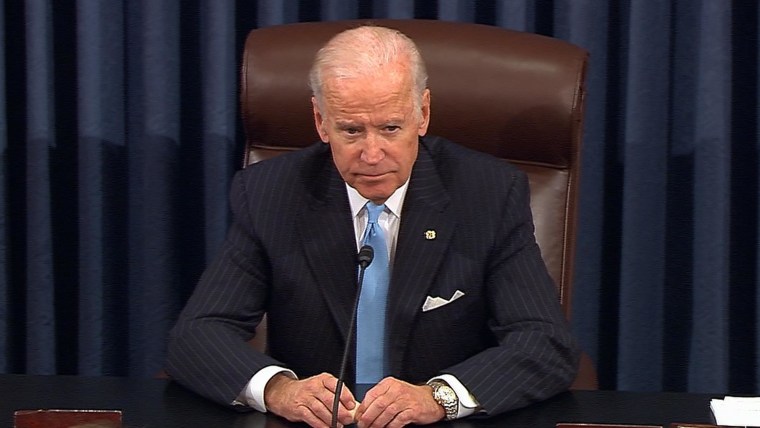Analysis: The 2023 Budget Would Nearly Complete President Biden's Unity Agenda
In 2016, when he announced that he would not be seeking the Democratic nomination for president that year, then-Vice President Biden said that his only regret was that he would have liked to have been the president who cured cancer. He had seen the War on Cancer launched 45 years prior and had even seen the cancer death rate fall by roughly 25 percent over the prior 25 years as smoking grew rarer. sex grew safer, the environment grew cleaner, and other risk factors declined. President Obama took notice and put Joe Biden in charge of the Beau Biden Cancer Moonshot, which, as part of the 21st Century Cures Act, secured $1.8 billion in cancer research funding at the NIH. Even after retiring between 2017 and 2019, President Biden worked to kill the cancer that killed his friend John McCain, his son Beau, and so many others, establishing a cancer charity that raised more than $400 million for research and treatment in less than two years.
Therefore, it's no surprise that he has chosen to seek to keep the promise he made and be the president who ends cancer as we know it by cutting the cancer death rate in half by 2047, which would represent a 62.5 percent total decrease in the cancer death rate over the course of 50 years and would turn cancer from the worst news possible into a disease like many others that can be treated and cured. He held a bipartisan meeting on cancer in May 2021 before making his big announcement in February 2022: forming a cancer cabinet, relaunching the Cancer Moonshot, and launching a whole-of-government approach to achieve the aforementioned goal. In his 2022 budget, he secured $1 billion for the launch of ARPA-H, a historic agency to make developments in the prevention, treatment, and cure of diseases, most notably cancer. President Biden's 2023 budget will exponentially increase investments in ARPA-H and other agencies that are working to end cancer's war on mankind, billions of dollars for life itself. When the COVID-19 vaccine rollout, goal of ending HIV/AIDS by 2030, ACT for ALS Act (which provided the largest investment in ALS research ever, twice as much as was raised by the Ice Bucket Challenge), Vice President Harris's actions on maternal health, and 2022 and 2023 budgets are taken into consideration, it seems that health will be a major theme of President Biden's administration.
This is especially true for mental health and the opioid epidemic, the latter of which claimed 105,000 lives in 2021. President Biden's 2023 budget, especially when combined with the reauthorization of the 21st Century Cures Act that will occur before his first term is up, the $1 billion investment in the Appalachian Regional Commission (including hundreds of millions in combating opioid addiction) made by the Infrastructure Investment and Jobs Act, and the billions in legal settlement money states are receiving from pharmaceutical companies, will make the largest-ever investment in combating opioid addiction. In terms of mental health, President Biden has already signed the Dr. Lorna Breen Healthcare Provider Protection Act, which provided hundreds of millions of dollars in funding to combat suicide and mental health issues healthcare providers have faced because of COVID-19, and the American Rescue Plan Act, which provided an unprecedented investment of billions of dollars into mental health, especially among youth. His 2023 budget will ensure a robust launch of the 988 suicide prevention lifeline, expand the number of mental health providers, and lower the cost of mental health services for Americans while expanding coverage. Aside from the 2023 budget, Congress should also pass the EARN IT Act, which will contribute to the president's goal of creating a healthier online environment.
Last but certainly not least, there's helping our veterans. This budget increases benefits for veterans by nearly $5 billion, from treating injuries for vets exposed to burn pits to expanding caregiving support and even improving burial services. Of course, that's just the start: Congress is currently considering the Honoring Our PACT Act, which would provide $300 billion in benefits to veterans suffering from cancers and other respiratory diseases after being exposed to burn pits.
There are a few other minor bills, but that's the gist of it. Aside from the EARN IT Act, the 21st Century Cures Reauthorization Act, and the Honoring Our PACT Act, the Omnibus Appropriations Act for 2023, also known as "Biden's Big Budget" or "the Other BBB," will complete President Biden's Unity Agenda that he laid out in the 2022 State of the Union Address.

Comments
Post a Comment